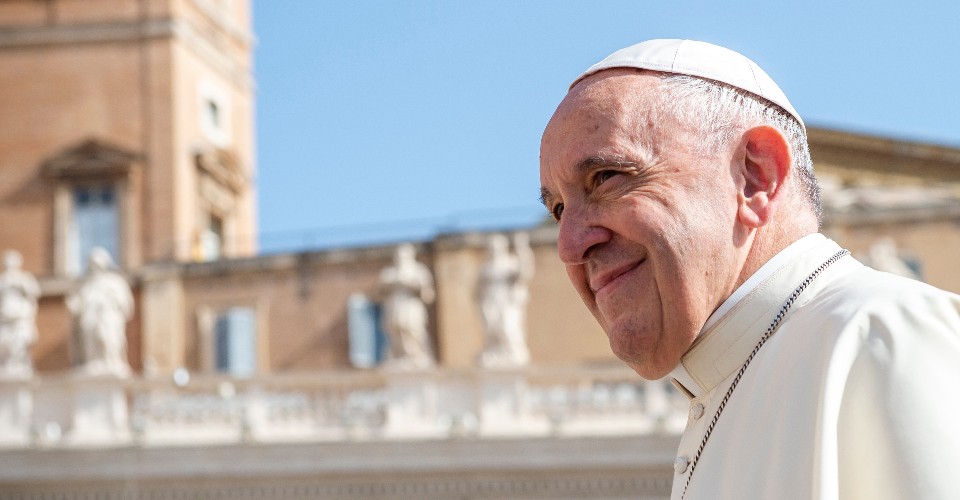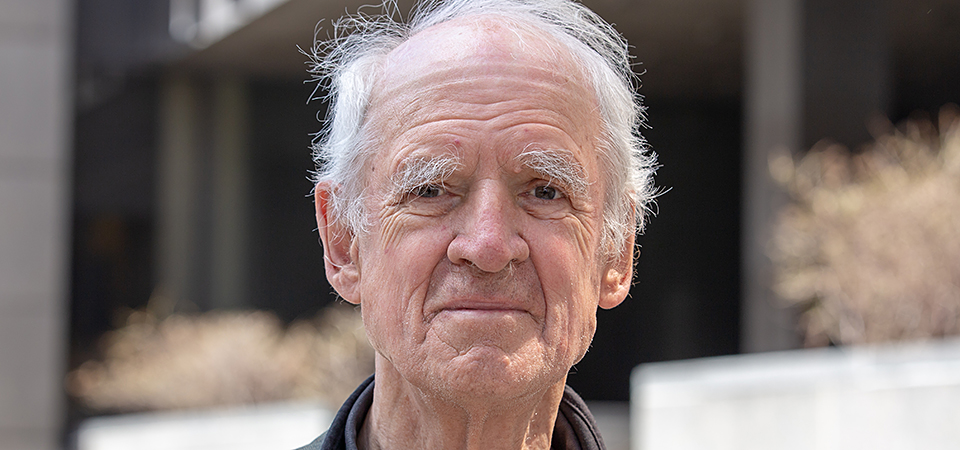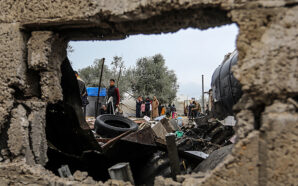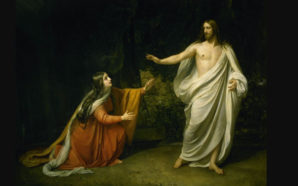Over the holiday break, Catholic Outlook is showcasing some of its most viewed, inspiring and thought-provoking articles from 2022.
The following article is part four of four reports by Br Mark O’Connor FMS, Vicar for Communications, as he reported from the sidelines of the Consistory of Cardinals in August.
This article was originally published on 15 September 2022.
Seekers not Dwellers – Towards a Spirituality of Synodality
“People…are seeking, and not without suffering, something or someone whom they sense but cannot name.” – Paul VI, Evangelii Nuntiandi (par.21)
Diagnosis comes before a cure. In this final Sounding from Rome 2022, I suggest that if we are to continue to develop a Synodal spirituality in the years ahead, we need to get the diagnosis right! For after all, as Pope Francis famously said – the Church is a ‘field hospital’.
“I see clearly that the thing the church needs most today is the ability to heal wounds and to warm the hearts of the faithful; it needs nearness, proximity. I see the church as a field hospital after battle. It is useless to ask a seriously injured person if he has high cholesterol and about the level of his blood sugars! You have to heal his wounds. Then we can talk about everything else. Heal the wounds, heal the wounds…. And you have to start from the ground up.” – Pope Francis
Of course, we would do well to remember, that the global Catholic Church has enormous diversity and that there is simply not one ‘diagnosis’ possible or even desirable.
On this point, see these acute analyses of the diversity of global Catholicism and the importance of listening attentively to the many different ‘voices’ in the people of God:
https://www.americamagazine.org/faith/2022/09/13/catholic-synod-diversity-243741 and https://www.commonwealmagazine.org/no-longer-european-export
Nonetheless, along with Pope Francis, we do have ‘wisdom’ figures who are expert diagnosticians of the soul of our culture and church in Europe, USA, Australia, U.K., Ireland et.al. They are worth listening to and studying further because they indeed all ‘start from the ground up’.
One such ‘wisdom figure’ is the Czech priest theologian Tomáš Halík. Halík was born in Prague and spent his childhood under Stalinism. He converted to Christianity and was ordained to the priesthood in secret. He was a close friend of Vaclav Havel and advisor to John Paul II. He is professor of sociology at Charles University in Prague, pastor of the academic parish, president of the Czech Christian Academy, and winner of the Templeton Prize.
In these days in Rome, Father Halík is here speaking to a large group of new bishops gathered for a course. Halík shared with me some aspects of his Roman address. He notes that all the severe ‘diseases’ of our time, not only infectious ones such as the coronavirus, but also social diseases such as terrorism and organized crime, are spreading rapidly in the global area.
Populism, nationalism, political extremism, and religious fundamentalism are also spreading wildly.
Halík argues that if the Church is to be a ‘field hospital’, it must provide for the people of God on the synodal journey home-based ‘hospitals’ dedicated to diagnosis, prevention, therapy, and rehabilitation.
The Church’s ongoing duty must include research and diagnosis of present conditions (reading and interpreting the “signs of the times”) and creating systems of ‘immunity’ against sick ideologies, fake-news propaganda, and the infections of destructive emotions.
Halík interestingly stresses the importance of the formation of candidates for priestly and other pastoral ministries in the Church. Their focus should not only include primarily “parishioners” (traditional believers) or centre around the mission to expand the number of believers.
He recommends instead the further development of pastoral models based on the conviction that everyone’s life has a “spiritual dimension”, a search for meaning.
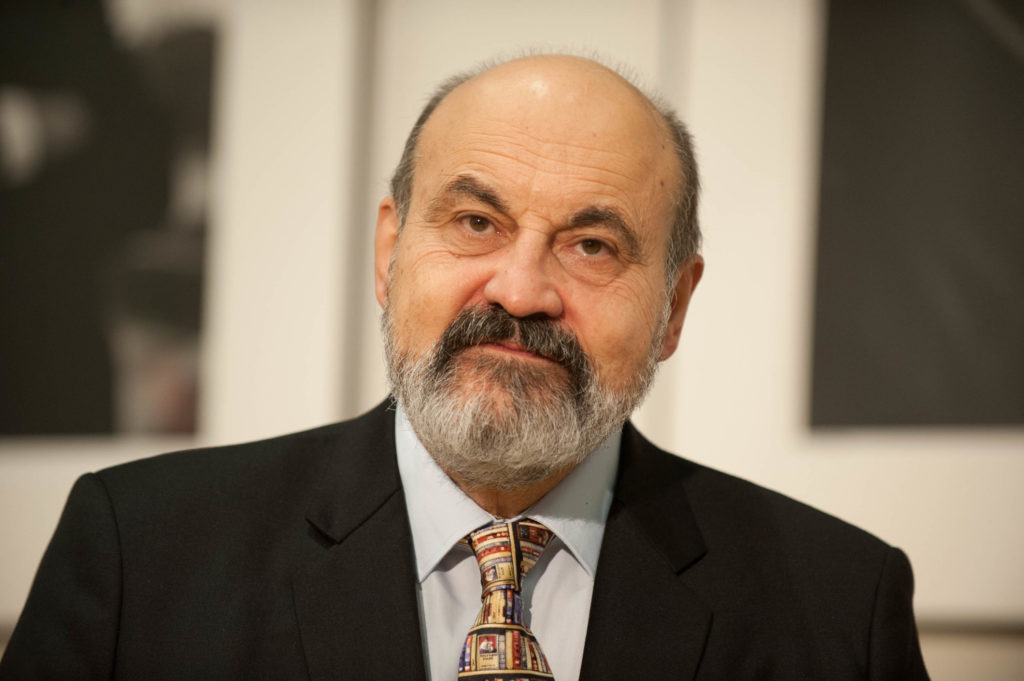
Czech priest theologian Tomáš Halík is seen during his lecture ‘Make the World Think Again: Reason, Hope, and Faith in an Age of Populism’, delivered at the Center for the Study of Europe at Boston University, Boston, USA, on Tuesday, March 28, 2017. Image: Wikimedia Commons
Accompanying these seekers is just not possible from the position of “owners of the truth” as with the ‘culture war’ approach. Time and time again in Australia and the USA especially, that aggressive, legalistic and combative model, has been shown not to work with the majority of our contemporaries.
It leads people instead to become ideologues, not followers of the Christ of the Gospels. Halík insists that Truth is a book that none of us has yet finished reading.
Halík sees the Church as charged to seek the Risen One also beyond her institutional and mental boundaries, and thus to continually open and expand those boundaries.
The process of growth and maturation of the Church (i.e. developing a synodal spirituality) cannot be evaluated only by the number of its formal members. Those who obsess about declining numbers of Catholics in say the latest Australian Census, could well be missing the point!
Pope Francis seems to concur with Halík. In his recent trip to Canada, Francis cited Charles Taylor, the Catholic Canadian philosopher, on secularisation saying it is “an occasion for restructuring the spiritual life in new forms and for new ways of existing.”
Francis puts it this way: “secularisation represents a challenge for our pastoral imagination”. See: https://www.vatican.va/content/francesco/en/homilies/2022/documents/20220728-omelia-vespri-quebec.html
Indeed, Charles Taylor has long argued that there are among us, in western countries, both ‘seekers’ and ‘dwellers’.
The ‘seekers’ – baptised Christians or not – continue to question. The ‘dwellers’ have found a home in a church but can ‘nest’ there so thoroughly that they only accept those who ‘believe’ exactly as they do.
In developing a synodal spirituality, Pope Francis is surely calling us to go beyond our ‘comfort zones’ and reach out to the ‘seekers’. Francis challenges us to become a more welcoming church, that can communicate with the many spiritual seekers all around us.
Many tensions in our church develop because the ‘dwellers’ among us look back to a seemingly secure past. The truly orthodox Catholic imagination, however, always avoids the ‘black and white’, binary and narrow-minded approach of the nostalgic and the fearful.
As we journey along the synodal path, maybe, we should each honestly question our souls: are we (and our institutions) entirely free from self-importance, arrogance, lack of empathy, excessive moralising and a tendency to confuse our own narrow image of God with the mystery of Divine Graciousness? Are we ourselves, the real reason people – especially young Catholics – feel the Catholic Church is irrelevant to their lives?
Portuguese Cardinal José Tolentino de Mendonça, Archivist and Librarian of the Holy Roman Church, is also a ‘wisdom’ figure who complements Halík and Taylor’s penetrating analysis.
I met the quietly-spoken Cardinal at the Vatican library, inside Vatican City and we spoke about his intriguing new book on spirituality (see below for details).
Cardinal Mendonça is a scripture scholar by training and a poet by vocation. He is recognised in Portugal as one of their finest literary and cultural figures. He came to wider recognition when he delivered the annual retreat to Pope Francis and the Roman Curia (published in English as Thirst: Our Desire for God, God’s Desire for Us).

A March 2021 file image of Cardinal José Tolentino de Mendonça of the Vatican Library. Image: Vatican News
Although Cardinal Mendonça is not yet well known among English speakers, his many works reflect his pastoral and spiritual vision of Christian discipleship to a broad audience and is a rich resource for a synodal spirituality.
Cardinal Mendonça’s writings weave together a beautiful tapestry of poetry, Scripture, art, philosophy, and theology that speaks to the heart of our contemporary circumstances. And in his latest book in English, The Mysticism of the Present Moment: Embodied Spirituality, Cardinal Mendonça beautifully draws from wisdom ancient and modern to correct the misperception that bodily experience is not a central aspect of a healthy spirituality. He reminds us that touch, taste, smell, hearing, and sight are the means through which we experience God’s grace in the everyday experience of human life.
In defining mysticism, he follows in the footsteps of great theologians like German Jesuit Fr Karl Rahner, who famously stated, “The Christian of the future will be a mystic, or he [or she] will not exist at all.”
Cardinal Mendonça is also drawn to a powerful, yet deceptively simple description of mysticism offered by the late Jesuit philosopher Michel de Certeau: “A mystic is someone ‘who cannot stop walking’.”
In this short sentence, we hear an echo of Pope Francis’s love of the image of walking for Christian life, which is so crucial fora Synodal spirituality.
Conclusion
These last two weeks in Rome have strengthened my conviction that Pope Francis’s leadership is providential for the people of God today.
This is the pastoral genius of Pope Francis…His loving ‘gaze’ to the refugee, the child, the sick and the suffering touch people’s hearts powerfully… even or rather especially, people who are not Catholics.
Each Pope brings his own special gifts to the Church and world. In a sense, the brilliant and holy Pope Benedict XVI finds God in listening to the beauty of Mozart, as does Francis, who discovers God by ‘gazing’ at Caravaggio! It is no surprise then that the painting Pope Francis loves so much is Caravaggio’s The Calling of Matthew—where Jesus ‘gazes’ on the tax collector Matthew.
Yes, the pastoral authenticity of Pope Francis is precisely because he ‘gazes’ at people with love and then accompanies them—in order to take persons on a deeper synodal journey.
As Paul Elie puts it: Francis has shown us again and again what it means for Catholics and the Church to accompany others. The Francis way of accompaniment is—You meet people where they are. You presume the good in them and hope that they will presume the good in you. You have a conversation. You open your mind and heart: you prepare to learn something from them. You go where they are going, if only for a little while, trusting that something good will come of it. You keep your wits about you, but you don’t let scruples rule you.
That’s not a bad definition of ‘synodality’!
As the synodal journey proceeds to its next stages, let’s all pray together:
The vision still has its time,
Presses on to fulfillment,
And will not disappoint;
If it delays, wait for it,
it will surely come,
it will not be late
– Habakkuk 2:2-2
For further reading and study of these two important ‘wisdom figures’ for a Synodal spirituality’, see:
Tomáš Halík:
- Videos:
- Spiritual Accompaniment. A task for pastoral psychology and theological anthropology https://www.youtube.com/watch?v=hpwq39cCodg
- https://www.youtube.com/watch?v=aMu5nNNWksY Tomáš Halík speaks on the Big Questions (full version), Templeton Prize 2014
- Article:
- Books:
- Touch the Wounds: On Suffering, Trust, and Transformation On Suffering, Trust, and Transformation (forthcoming)
- Grün, Anselm; Halík, Tomáš; Nonhoff, Winfried. Is God Absent?: Faith, Atheism, and Our Search for Meaning, Paulist Press.
- From the Underground Church to Freedom
- I Want You to Be: On the God of Love
- Night of the Confessor: Christian Faith in an Age of Uncertainty
- Patience with God: The Story of Zacchaeus Continuing In Us
Cardinal José Tolentino Mendonça:
- Books translated into English:
- The Mysticism of the Present Moment: Embodied Spirituality, Paulist Press.
- Thirst: Our Desire for God, God’s Desire for Us, Paulist Press.
- Jesus and the Woman: Revealing God’s Mercy Revealing God’s Mercy, Paulist Press.
- No Journey Will Be Too Long: Friendship in Christian Life Friendship in Christian Life, Paulist Press.
- Our Father, Who Art on Earth: The Lord’s Prayer for Believers and Unbelievers The Lord’s Prayer for Believers and Unbelievers, Paulist Press.
Read Br Mark’s previous Soundings from Rome below:
PART 1 – Soundings from Rome: A new consistory for a global church
PART 2 – Soundings from Rome: Good News from a Pilgrim Church
PART 3 – Soundings from Rome: The Pilgrim People of God navigate the journey
Br Mark O’Connor FMS is the Vicar for Communications, Diocese of Parramatta and Pope Francis Fellow, Newman College, University of Melbourne.
With special thanks to the PAYCE Foundation for their sponsorship of the Pope Francis Fellowship at Newman College and these ‘Soundings’ from Rome.





